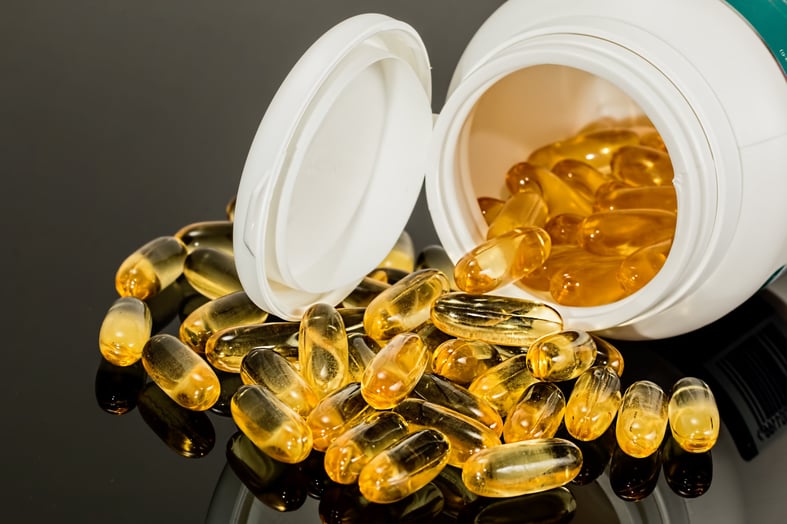
So, you’re thinking about trying for a baby, or you’ve already started trying and you’re wondering whether there’s anything you can do to increase your chances of conceiving naturally, right?
What about all those supplements you see in the health aisle at the supermarket? Or the ones you’ve read about online?
Is there real evidence they work? Can they do harm? Is there a cheaper alternative? You’ll probably have lots of questions. Here we try to explain the truth to help you make an informed decision...
What should I avoid while shopping for pre-pregnancy supplements?
Vitamin A – also known as retinol. Large amounts of vitamin A can be harmful to your baby, so if you’re pregnant or are even trying for a baby, don’t eat liver or liver products as these are very high in vitamin A. Other foods that are high in vitamin A include oily fish and fish liver oil. You should avoid taking any supplements containing vitamin A.
Should I try a pre-pregnancy/fertility supplements?

There are lots of supplements out there that offer to boost your body’s ability to become pregnant or create an environment for a baby to thrive more within you.
Scientific evidence of their impact varies, but if you do some research and decide you want to try supplements, they are unlikely to do any harm, so long as they don’t feature any vitamins you should be avoiding!
Pre-pregnancy multi-vitamins
These often expensive supplements usually claim to top up your essential vitamins to make it easier to conceive and ensure that as soon as you conceive the developing cells have all the fuel they need to start the pregnancy process strongly.
They usually promote that they are high in zinc, vitamins C and B12 and folic acid, all things you do need in your diet if you plan to conceive.
Does it work? There’s no evidence to suggest taking these supplements improves the chances of getting pregnant, however the vitamins they highlight are recommended to be taken if you are planning to become pregnant. You may wish to source cheaper alternatives to these (zinc, vitamin B12, folic acid) but there are plenty of pregnancy-specific brands that won’t harm you or baby.
Supplements to take before pregnancy
There are some supplements you need to take pre-pregnancy to help give baby the best chance of a healthy birth. Some reduce the risk of birth defects while others help the early foetus absorb the nutrients it needs.
- Folic acid – 400mcg of folic acid a day for at least a month before pregnancy and during your first trimester can significantly decrease the chances of birth defects.
- Iron – this is an essential mineral for women who are trying to conceive. Iron is good for general health, energy levels and the formation of oxygen-carrying red blood cells. Becoming deficient in iron can have an impact on fertility. Food containing iron includes lean red meat, tinned fish, eggs, apricots, raisins, sesame seeds and fortified cereals.
- Calcium – it’s recommended that women trying to conceive should consume around 1,000mg a day because when you do become pregnant, your growing baby will need calcium. Research has shown that calcium has an important role to play in creating the environment for the sperm to reach the egg. You can take a calcium supplement or an over the counter prenatal formula. Calcium is also found in dairy produce and leafy greens.
- Vitamin B6 – women who consumed at least 10 mg of vitamin B6 before they conceived reported less morning sickness than those who didn’t. So take this vitamin now to head off pregnancy symptoms after you conceive.
- Multivitamins – if you’re not already taking multivitamins, then start taking them now. In a study following over 18,000 women who were trying to get pregnant, researchers found a correlation between taking a multivitamin supplement and having a lower chance of ovulation problems.
- Vitamin D – vitamin D is important for immunity and the absorption of calcium. Low levels before and during pregnancy can affect the growth and development of the baby.
Supplements for him

Your partner also needs to ensure they’re getting the right vitamins and minerals before beginning to try for a baby. We’re not talking protein shakes here either.
There are a number of important nutrients that can aid the production of healthy sperm including zinc, folate, and antioxidants such as vitamin C.
As with pre-pregnancy supplements for women, you don’t need to purchase expensive, dedicated pregnancy multi-vitamins for men, just to make sure that whatever vitamins they take already have the right ingredients.
Do you know how to get get your body in prime condition for pregnancy or fertility treatment? Take our quiz to see how much you know about staying healthy for pregnancy.





